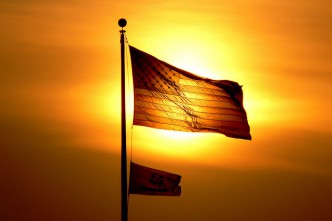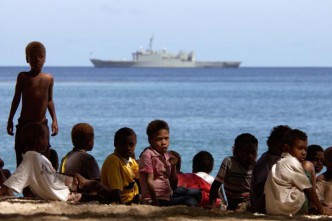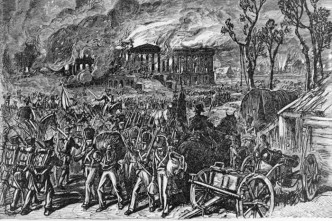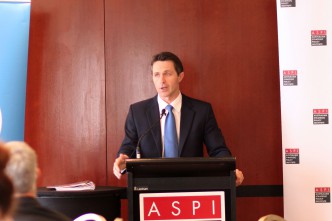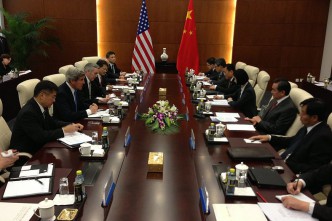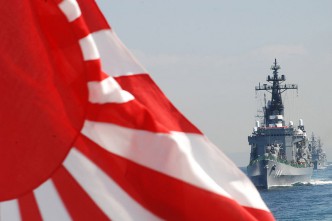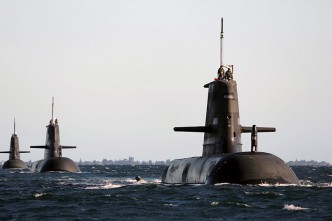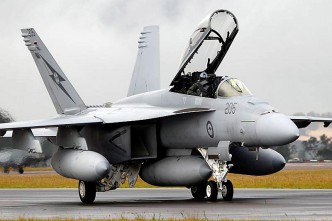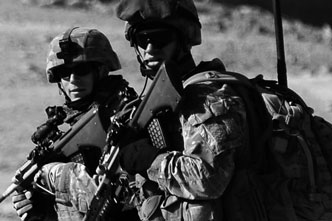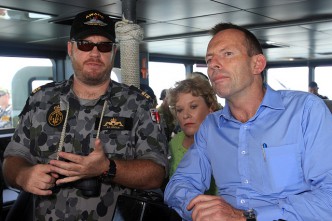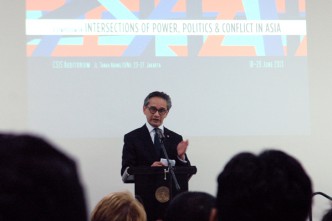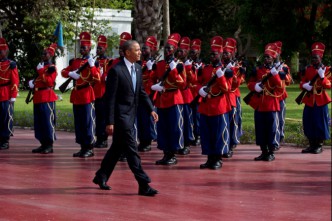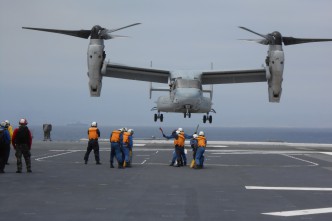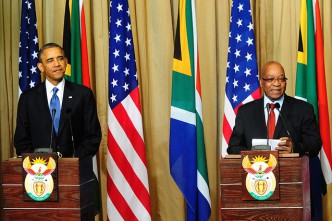Peter Jennings has sprung to defend the Anglosphere from my disparagement. But before battle begins, let’s clarify what exactly he’s defending, because Peter uses the term ‘Anglosphere’ in several rather different ways. Some of them …
Shortly after dawn on 24 July 2003, the first Hercules touched down in Honiara with lead elements of the 1,400 troops, 300 police, and officials from the nine Pacific Forum countries initially comprising the Regional …
There are all sorts of reasons that the Persian Emperor Darius I finally decided he’d had enough and prepared to invade Greece. After all, it was probably just a matter of time before the noisy, …
Last week at an ASPI lunch in Sydney, Home Affairs Minister Jason Clare presented reforms to the Customs and Border Protection Service which are intended to fight corruption, modernise its workforce and streamline processes for …
The gathering’s theme was ‘Security and Cooperation in the Asia Pacific Region,’ yet the US–China relationship dominated. The symposium run by the China Institute for International Strategic Studies was free of academic mumbo-jumbo. The sessions, at …
The Japanese government released its annual Defense White Paper (DWP) on Tuesday. In comparison with last year’s version it displays a harsher attitude towards China, indicating that Japan’s defence policy could shift further in coming …
In a Ministerial Statement late last month, Defence Minister Stephen Smith outlined and explained the Australian government’s principles of ‘Full Knowledge and Concurrence’ in relation to American defence activities in Australia. This statement merits greater …
Almost inevitably, I find myself disagreeing with another column by Hugh White, this time in The Age newspaper of 9 July, in which he damns the foreign policy of the Gillard government, condemns the poverty …
Money it would seem really is the root of all evil, or at least the lack of it! Many defence commentators would agree with George Bernard Shaw in that judgement. The problem for Australian defence—and …
The latest issue of the Kokoda Foundation’s Security Challenges journal is a special edition that collects contributions on ‘The Defence White Paper 2013’. ASPI is well represented, and the abstracts of our papers are reprinted …
Obama’s first stop in Africa was Senegal. While there, he met with several key members of the judiciary from across Africa (pictured above), at which the discussions centered on law in Africa. Obama told the …
To paraphrase Julia Gillard in her farewell press conference, the three categories of ‘maddy’, ‘straight’ and ‘fixer’ do not explain everything about political leaders, but nor do they explain nothing. As the previous column said, …
Indonesian Foreign Minister Natalegawa has recently articulated his proposal for an Indo-Pacific Treaty at no less than three different conferences (including ‘Intersections of Power, Politics and Conflict in Asia’ in Jakarta in June) and it bears careful …
Last week, President Obama completed a whirlwind official visit to west, southern and eastern Africa, stopping in Senegal, South Africa and Tanzania, important democratic US partners. The President announced a number of new initiatives designed …
In mid-June, as Presidents Xi and Obama strived to build bonhomie in the arid desert east of Los Angeles, a US–Japanese armada was purposefully massing off the coast, preparing for a simulated invasion of southern …
Kevin Rudd has used his first trip as Prime Minister to the Australia–Indonesia Annual Leader’s meeting in Jakarta to launch the Australia the Asian Century Indonesia country strategy (PDF). Looking out to 2025, the strategy …
Cybersecurity is rapidly emerging as one of the highest US priorities for diplomatic engagement in Asia. A flurry of US statements over the last few months points to a new emphasis being put on building …
ASPI today hosted a lunch address by Mr David Gould (PDF) in the DMO. It wasn’t the first public address on the subject of Australia’s current and future submarines by DMO’s General Manager Submarines, but …
President Obama visited South Africa at a time when the nation is consumed with concern for the ailing health of Nelson Mandela. During their stay in South Africa, Obama and his family visited the Robben …
I’ve had a number of conversations (both real and virtual) about intelligence oversight since I first wrote about it here a couple of weeks ago. In particular, Andrew Zammit’s response was a thoughtful piece on …


